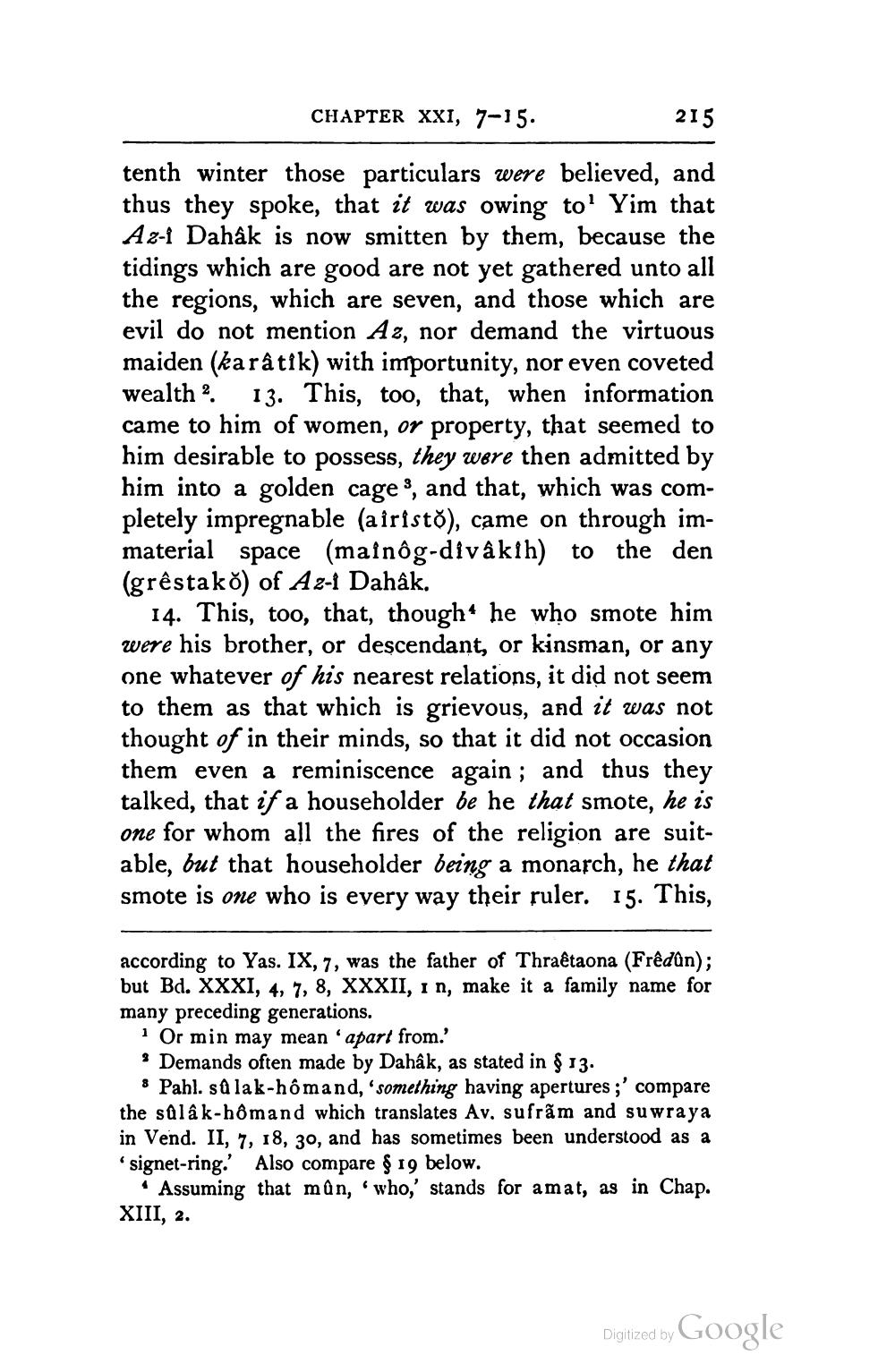________________
CHAPTER XXI, 7-15.
215
tenth winter those particulars were believed, and thus they spoke, that it was owing to? Yim that Az-i Dahâk is now smitten by them, because the tidings which are good are not yet gathered unto all the regions, which are seven, and those which are evil do not mention Az, nor demand the virtuous maiden (karatik) with importunity, nor even coveted wealth”. 13. This, too, that, when information came to him of women, or property, that seemed to him desirable to possess, they were then admitted by him into a golden cages, and that, which was completely impregnable (a iristo), came on through immaterial space (mainôg-divâkih) to the den (grêstako) of Az-i Dahâk.
14. This, too, that, though he who smote him were his brother, or descendant, or kinsman, or any one whatever of his nearest relations, it did not seem to them as that which is grievous, and it was not thought of in their minds, so that it did not occasion them even a reminiscence again ; and thus they talked, that if a householder be he that smote, he is one for whom all the fires of the religion are suitable, but that householder being a monarch, he that smote is one who is every way their ruler. 15. This,
according to Yas. IX, 7, was the father of Thraêtaona (Frédun); but Bd. XXXI, 4, 7, 8, XXXII, 1 n, make it a family name for many preceding generations.
i Or min may mean 'apart from.' * Demands often made by Dahâk, as stated in 8 13.
8 Pahl. sû lak-hômand, something having apertures ;' compare the salâ k-hômand which translates Av, sufram and suwraya in Vend. II, 7, 18, 30, and has sometimes been understood as a signet-ring. Also compare § 19 below.
Assuming that mûn, who,' stands for amat, as in Chap. XIII, 2.
Digitized by Google




